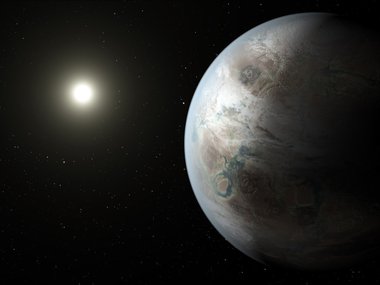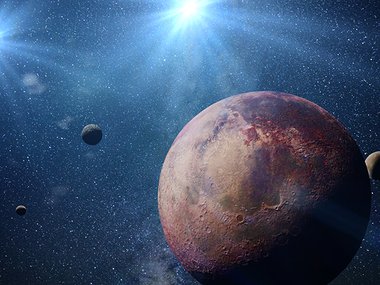Question Your World: How Much Frost Did We Just See on Mars?
During the hot days of summer, icy drinks are often on many people’s minds. This summer is also giving astronomers reason to get excited about ice as well!
Our neighboring red planet, Mars, has caught the attention of scientists because of a recent photo from the European Space Agency’s Mars Express spacecraft. Water frost! Not only water frost, but water frost in a region of Mars once thought not suitable for ice!
On Earth, it’s not unusual to see tall mountaintops covered in snow. But on Mars, the tallest mountains are near the equator, where plenty of sunlight and the planet’s thin air combine to keep temperatures relatively high. These recently released images are showing water frost forming high atop Olympus Mons, the largest volcano in the solar system!
The amount of water involved in this frost is enough to fill 60 Olympic swimming pools. But there's no diving: the depth of the frost is only about the width of human hair!
While it’s a cool discovery, this water frost would not be very helpful to human explorers. It only survives for a few hours before sunrise in the Martian winter, making it even more difficult to gather this precious resource.
This discovery is not the first time ice has been spotted on Mars, but this news greatly contributes to our greater knowledge of Mars’ water cycles. Understanding these water cycles and further studying Mars’ geologic variables will be vital for future human trips to this distant world.
So, this is some cool news for the summer heat. Stay tuned as more hot stories break in the world of astronomy!
Need more space science? No problem, we've got you covered! Here are two suggestions for curious minds looking for some more information about the red planet and beyond.
Have you ever wondered what it takes to fly a helicopter on Mars?! Check out our blog dedicated to that exact question!
Perhaps the gigantic Olympus Mons on Mars is just the start of your other-worldly volcanoes? No problem! We have a great read on volcanoes of our solar system.


